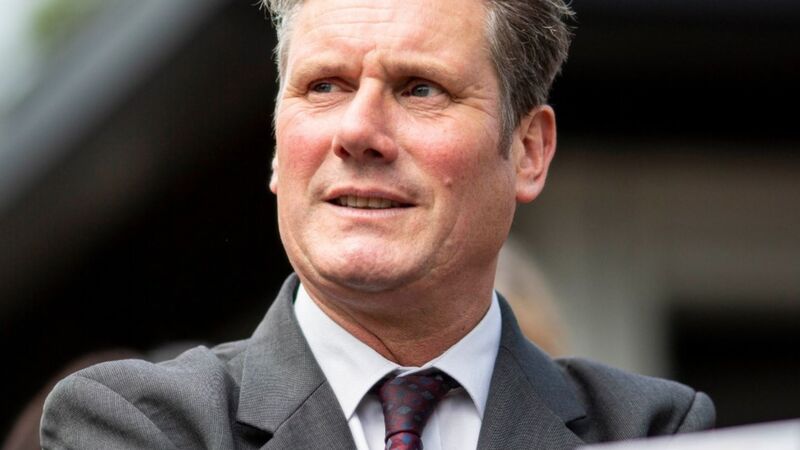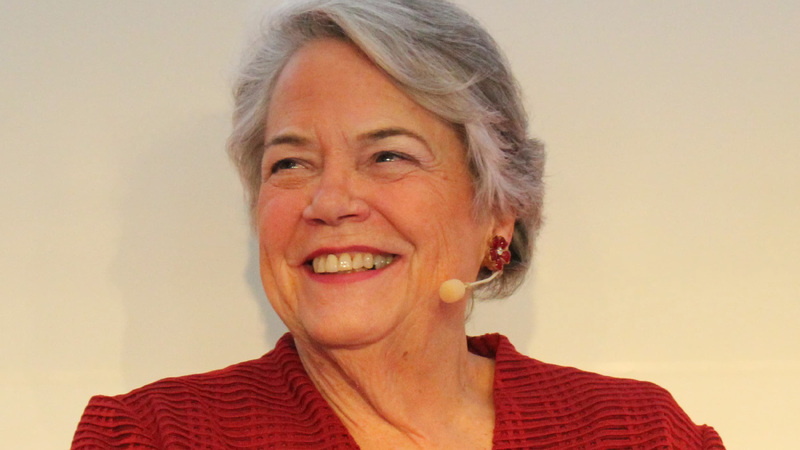You are viewing your 1 free article this month. Login to read more articles.
Book trade swings behind Labour with six days to go
The book trade has thrown its support back behind the Labour Party, with six days to go until the general election. According to The Bookseller’s online survey of the trade, 64.1% intend to vote for Jeremy Corbyn’s party at the polls next Thursday (8th June), while 15.7% will put a cross in the box of the Liberal Democrats, with the Conservative Party coming a close third on 13.1%.
The results show a huge swing back in Labour’s favour after seven weeks of hard campaigning by the political parties. When The Bookseller poll was last conducted—on the day after the election was announced, in April— just 38% said they were going to vote Labour, with a rump of 30% backing the Lib Dems, largely due to its clear stance against Brexit. Only 10% backed the Tories at that stage.
However, the new results show that hard campaigning by the parties has altered views in the book trade, with the percentage of “undecided” respondents falling from 10% seven weeks ago to less than 2%. Many respondents said they had switched allegiance from the Lib Dems to Labour after being convinced by the calibre of Corbyn, despite first having doubts. Others said they were voting tactically to keep the Conservatives out in their wards, while others have become less convinced by the Liberals as the campaigns have unfolded.
“I have changed from Lib Dem to Labour. My faith is restored in Corbyn after a Labour surge in the polls. Not much point in voting Lib Dem; I want a Labour majority,” one commenter said. “I’ve moved from Green to Labour,” said another. “More chance to defeat Conservative in my constituency and avoid a landslide.”
While Brexit is still high on the agenda, with 24.4% saying it had affected their decision “a lot”, the survey shows its influence on voting intentions has waned since the election was first called, when that figure was 33%.
The results show support for Labour among the trade is higher now than before the 2015 general election, when 46% said they would vote for then-leader Ed Miliband. Meanwhile, the Green Party has taken the biggest tumble since the last election, now just polling at 3%, down from 13% in 2015. Less than 1% of the trade intends to vote SNP, and no respondents intended to vote for UKIP.
Manifesto pledges
The trade’s top three parties of choice have all vowed to support the creative industries, albeit to varying degrees.
Labour has pledged a £1bn Cultural Capital Fund, to be used to support literature, music and theatre. It will also create a £160m-a-year Arts Pupil Premium, which will enable every primary school child in England to learn music, drama and dance. It plans to launch a creative careers advice campaign in schools to demonstrate the range of careers and opportunities available. Crucially, the party has pledged to end cuts to local authority budgets to support the provision of libraries, museums and galleries. It has also promised to maintain the zero rate of VAT for print books and introduce a “package of reforms” for business rates, including seeking a “fairer” appeals process. Corbyn also wants to hike corporation tax, in order to support higher spending on schools, from 19% to 26% by 2020.
The Conservatives, meanwhile, promise to support more arts organisations outside London and ensure there is a “robust” system for the protection of Intellectual Property (IP) when the UK has left the EU, “with strong protections against infringement”. It also pledged to help provide the skills and digital infrastructure that creative companies need, and will seek to build up “favourable” tax arrangements such as the Creative Sector Tax Relief.
On business rates, the Tory manifesto says the party will make longer-term reforms to the system, such as ensuring that valuations are conducted more frequently and exploring the introduction of self-assessments in the valuation process. It has also pledged to lower corporation tax even further, from 19% to 17%.
The Liberal Democrat Party believes the arts, media and sports are “essential for personal fulfilment and quality of life”, and worries that funding for organisations is threatened by Brexit. It has pledged to maintain current standards of IP protection, working within the EU to ensure the continuation of territorial licensing of rights. It also wants to create “creative enterprise zones” to grow and regenerate the cultural output of areas across the UK, and believes in a review of business rates to reduce burdens on small firms, which will be a “priority”, it said.
Where are the libraries?
Lobbying groups have welcomed manifesto commitments to the creative sector and the protection of IP, but fear the impact Brexit could have on the hiring of overseas talent has not been addressed by either Labour or the Conservatives.
Stephen Lotinga, c.e.o. of the Publishers Association, said: “While we welcome the recognition from all the main parties about the importance of the UK being able to attract international talent, we are concerned about [Conservative] plans to increase the levy on firms that hire overseas workers and will work to ensure this does not damage the success of the publishing industry.”
The Federation of Creative Industries has said it is also “extremely concerned” about Conservative proposals to double the Immigration Skills Charge levied on companies employing migrant workers and increase the Health Immigration Surcharge. “Given the importance of international talent to the attractiveness of our creative industries, this could jeopardise the sector’s global leadership,” the organisation said.
Meanwhile James Daunt, m.d. of Waterstones, is dismayed at the lack of reference to halting library closures, which he believes is the “single biggest issue” for the industry. “Business rates have made life very difficult for us, but libraries are far more important. We rely on people reading and discovering books. The fact that there have been so many closures, and these show no signs of stopping, is the biggest issue for the industry,” he said.
His exasperation was shared by Society of Authors c.e.o. Nicola Solomon, who said she was “very disappointed that one manifesto [the Conservatives’] did not mention libraries at all, and none of the three expressed a clear line on school libraries or reading for pleasure”. However, she welcomed the “strong commitment” in all three manifestos to support the creative industries.
Chicken House m.d. Barry Cunningham also queried the lack of support for libraries. For him, though, “Labour has some more support for community endeavours”, while the Tories’ support for business rates is a “glimmer in the darkness”. “I don’t know what I’ll vote yet—perhaps Lib Dem to get them back in the South West, but I’m still poised,” he said.
For Gordon Wise, president of the Association of Authors’ Agents, the lack of detail on immigration for EU nationals after Brexit is a glaring omission in the manifestos. “I don’t think anyone has really spelled that out,” he said. However, he was pleased that it “seems to be fashionable to support the creative industries”.
“Whoever wins, and definitely if it’s the Conservatives, one thing we’re going to be working on from a public affairs point of view is exporting licences for authors and agents. We need to make sure in all the export negotiations that whole web of licensing is protected and supported, and reciprocal tax agreements are in place,” he said.
For others, the spectre of Brexit still looms large. Andrew Franklin, founder of Profile Books, said: “The main thing I’m concerned about is Brexit. That involves freedom of movement, access to the single market. And the continuing strength of British universities is something I think is very important for the long-term future of a reading culture. With the utmost reluctance I’ll be voting for Labour, because I’m in Keir Starmer’s constituency... And I would like to see him as a future leader.”
For Stuart Cole, who owns Castle Hill Bookshop in Richmond, North Yorkshire, the Conservative Party is the one he trusts to see Brexit through. “It is absolutely inconceivable that I would vote Labour,” he said. “I think that the Conservative Party is the best way to take us forward, with Brexit and everything else.”
But Iain Dale, m.d. of political publisher Biteback, disagreed on the influence of leaving the EU on the election, arguing the economy was more important. “The election is supposed to be about Brexit but it has become about a lot of other things since Theresa May called it,” he said. “I’m sure most publishers will probably vote Labour but I think they will live to regret it, because it would absolutely crash the economy. The policies Corbyn has proposed in his manifesto are basically the economics of a madhouse. However much you might disagree with some Tory policies—on social care, on welfare or whatever—they have, I think, a decent economic record. They are far more business-friendly than Labour, and I think the economy will be stronger under a Tory government.”
Despite the majority of the book trade’s support for Labour, for Daunt, the result is a “foregone conclusion”, with the Tories ahead in most polls since April, despite Labour recently narrowing the gap. Alessandro Gallenzi, m.d. of Alma Books, is in “quiet resignation at the possibility of a large Tory win”.
However, Daunt said the election hasn’t dampened book sales, as he had feared. “Usually an election means a downturn in book sales, because everyone is distracted by it. But that doesn’t seem to have happened this time,” he said.




















